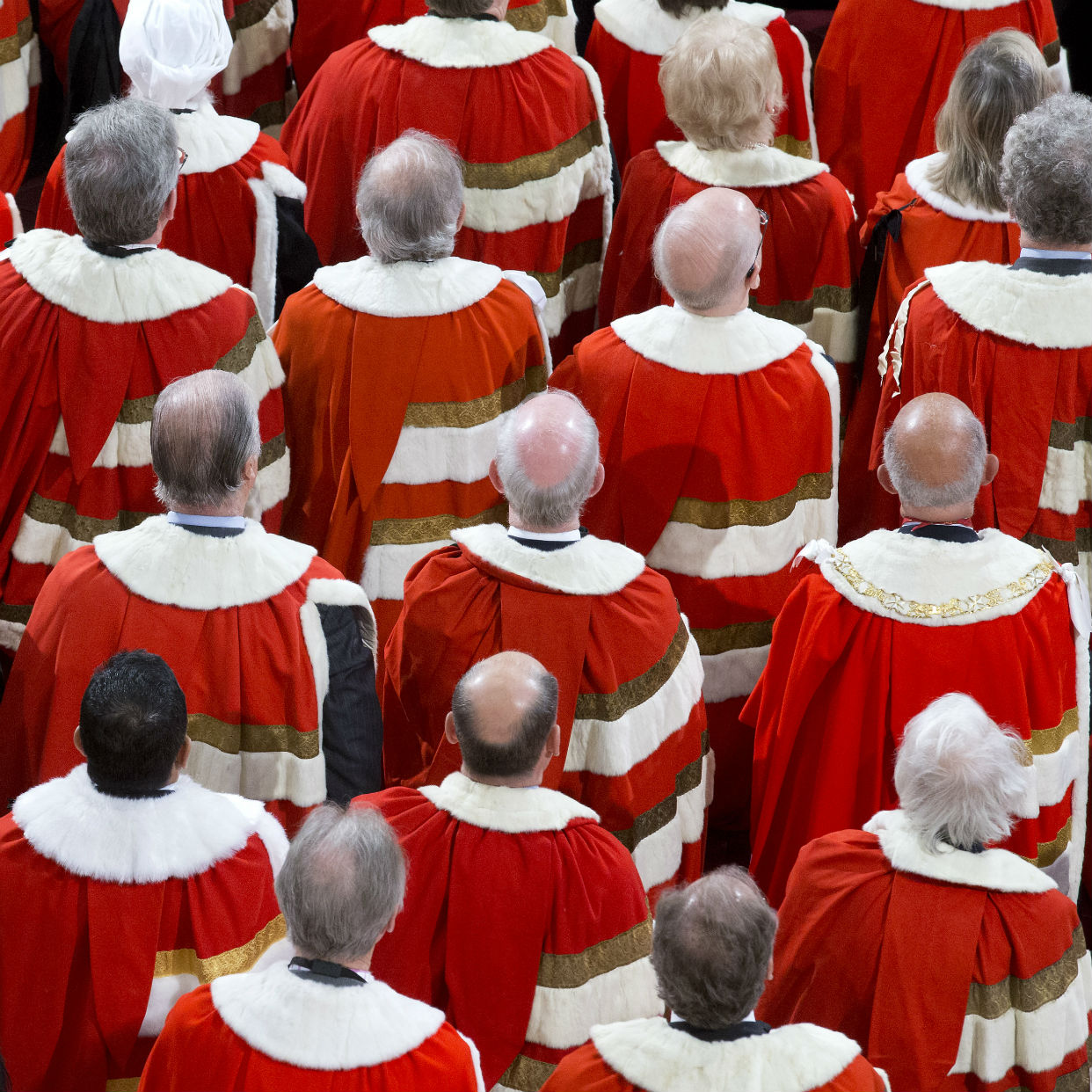Lords peerages ‘to be limited to 15 years’
New plan to lower numbers will see members of the House serve fixed terms

A free daily email with the biggest news stories of the day – and the best features from TheWeek.com
You are now subscribed
Your newsletter sign-up was successful
Newly awarded peerages will be subject to a 15-year limit as part of a plan to “shrink the House of Lords”, according to information obtained by The Times.
The Lord Speaker’s committee will publish a report last this month that explores methods of reducing membership.
At present, the House of Lords has around 800 members, “making it the second-largest legislative chamber in the world after the National People’s Congress of China”.
The Week
Escape your echo chamber. Get the facts behind the news, plus analysis from multiple perspectives.

Sign up for The Week's Free Newsletters
From our morning news briefing to a weekly Good News Newsletter, get the best of The Week delivered directly to your inbox.
From our morning news briefing to a weekly Good News Newsletter, get the best of The Week delivered directly to your inbox.
Owing to the cost of maintaining the House, there has been pressure on numerous successive UK governments to scale back the size of the chamber. There is presently no retirement age or limit on how long peers can serve, and the legislative body has been described as the “world’s most elitist”.
The report is likely to recommend that two peers must retire or die in order for another to be appointed, according to The Guardian.
The four major parts of the Lords – 252 Conservatives, 199 from Labour, 100 Lib Dem peers and 180 crossbenchers – will also be called upon to ‘commit to cutting the size of their blocs in stages’, according to The Times.
It is understood both Labour and the Lib Dems are “willing to back changes in principle that would reduce the size of the House of Lords”, adds The Guardian.
A free daily email with the biggest news stories of the day – and the best features from TheWeek.com
A handful of Lords members have been peers for more than 60 years, and a rule allowing peers to retire and keep their title, introduced in 2014, has prompted only 70 to do so - far fewer than was hoped.
-
 The week’s best photos
The week’s best photosIn Pictures An Andean god, a rogue squirrel, and more
-
 ‘Zero trimester’ influencers believe a healthy pregnancy is a choice
‘Zero trimester’ influencers believe a healthy pregnancy is a choiceThe Explainer Is prepping during the preconception period the answer for hopeful couples?
-
 AI surgical tools might be injuring patients
AI surgical tools might be injuring patientsUnder the Radar More than 1,300 AI-assisted medical devices have FDA approval
-
 How corrupt is the UK?
How corrupt is the UK?The Explainer Decline in standards ‘risks becoming a defining feature of our political culture’ as Britain falls to lowest ever score on global index
-
 The high street: Britain’s next political battleground?
The high street: Britain’s next political battleground?In the Spotlight Mass closure of shops and influx of organised crime are fuelling voter anger, and offer an opening for Reform UK
-
 Is a Reform-Tory pact becoming more likely?
Is a Reform-Tory pact becoming more likely?Today’s Big Question Nigel Farage’s party is ahead in the polls but still falls well short of a Commons majority, while Conservatives are still losing MPs to Reform
-
 Taking the low road: why the SNP is still standing strong
Taking the low road: why the SNP is still standing strongTalking Point Party is on track for a fifth consecutive victory in May’s Holyrood election, despite controversies and plummeting support
-
 What difference will the 'historic' UK-Germany treaty make?
What difference will the 'historic' UK-Germany treaty make?Today's Big Question Europe's two biggest economies sign first treaty since WWII, underscoring 'triangle alliance' with France amid growing Russian threat and US distance
-
 Is the G7 still relevant?
Is the G7 still relevant?Talking Point Donald Trump's early departure cast a shadow over this week's meeting of the world's major democracies
-
 Angela Rayner: Labour's next leader?
Angela Rayner: Labour's next leader?Today's Big Question A leaked memo has sparked speculation that the deputy PM is positioning herself as the left-of-centre alternative to Keir Starmer
-
 Is Starmer's plan to send migrants overseas Rwanda 2.0?
Is Starmer's plan to send migrants overseas Rwanda 2.0?Today's Big Question Failed asylum seekers could be removed to Balkan nations under new government plans